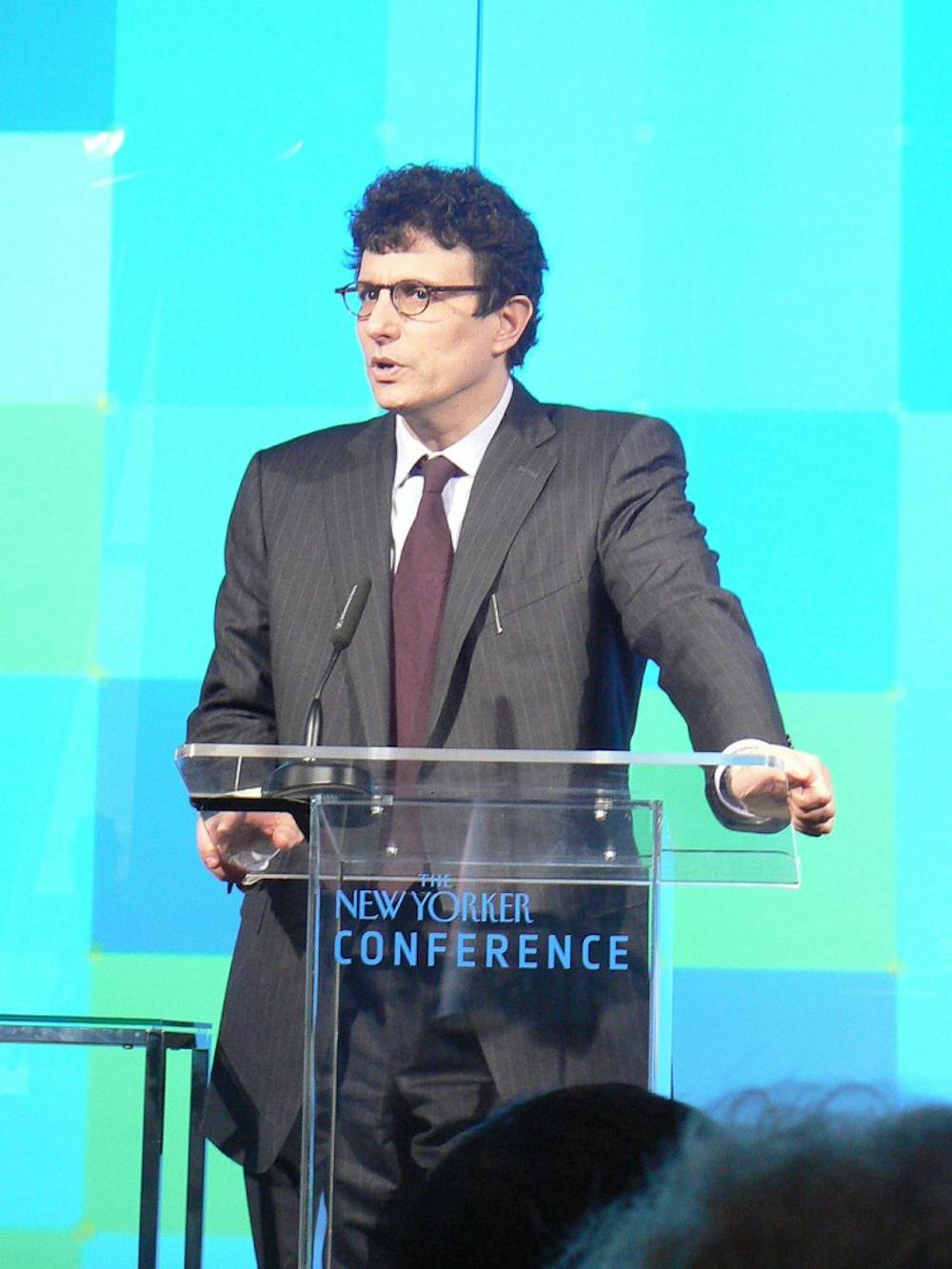Journalist David Remnick ’81 is at the center of a high-profile controversy concerning how the media should report on President Trump and his supporters.
On Sept. 2, The New Yorker announced that political strategist Steve Bannon would participate in October’s New Yorker Festival, which features prominent public figures being interviewed in front of live audiences who pay for seats.
Bannon was scheduled to be interviewed by Remnick, the magazine’s editor.
Remnick declined requests for comment from The Daily Princetonian.
Within 12 hours of the announcement, Remnick withdrew the former White House Chief Strategist’s invitation.
Remnick’s decision to disinvite Bannon came after a storm of criticism from colleagues and threats from celebrities scheduled to participate in the festival, which was first held in 1999.
Journalists, including staff writers at The New Yorker, said Remnick’s decision would normalize and give a platform to the alt-right and white supremacy.
Meanwhile, creatives Jim Carrey and Judd Apatow, who were scheduled to participate in the festival, both expressed on Twitter that they would not stand on the same stage as Bannon.
Other scheduled participants include journalist Malcolm Gladwell and actor Maggie Gyllenhaal.
Bannon, a founding member of Breitbart News, said in 2016 that he wanted the organization to be “the platform for the alt-right.” He also worked on Trump’s travel ban, targeted at majority-Muslim countries, and backs nationalists movements in Europe, many of which are successfully campaigning on xenophobia, according to Reuters.
In a statement for The New Yorker, Remnick wrote, “By conducting an interview with one of Trumpism’s leading creators and organizers, we are hardly pulling him out of obscurity … we’d be taking the opportunity to question someone who helped assemble Trumpism.”
Remnick continued, saying a past media interview with Bannon was “valuable, as it revealed something about the nature of the speaker and the campaign he helped to lead.”

He said that the point would be to interview Bannon rigorously in order to put pressure on the views he purports.
But Remnick soon re-considered and changed his mind.
“There is a better way to do this,” he wrote in the statement for The New Yorker.
According to Remnick, that better way is to interview Bannon offstage for a more traditional radio news show.
In the aftermath of Remnick’s disinvitation, journalists who specialize in covering race and white supremacy took to Twitter, sharing ideas about journalism ethics.
Tanzina Vega, a former journalism professor at the University and the creator of a national beat on race and ethnicity at The New York Times, tweeted that journalists need to think more critically when deciding whether to cover people like Bannon.
“The time for having substantive interviews about Bannon/Trump influence/white supremacy was when he was running for office,” she tweeted on Sept. 4. “Want to do the interview? Fine. But why now? That’s a question that ALL journalists ask. What is the value in this interview? Bannon has been interviewed many, many times.”
Vega continued to post opinions on how journalists should interview white supremacists. She said journalists can be better interviewers by attempting to answer questions about why their subject’s message resonates with Americans in the first place.
She added on Twitter that her fall 2017 course at the University, “The Media and Social Issues: Reporting on Race in America Today,” looked closely at media interviews with white supremacists, analyzing “tone, substance, and style.”
Vega currently hosts WNYC's “The Takeaway.”
The week of Remnick's announcement, WNYC's “On the Media” re-aired an episode on mistakes journalists make when covering white supremacists.
Vega did not reply to emails from the ‘Prince’ asking for follow-up.
Joe Stephens, Director of the Program in Journalism at the University and award-winning investigative journalist with The Washington Post, talked to the ‘Prince’ on Tuesday about the nuanced differences between print media and live events like The New Yorker Festival.
“In a publication, if someone’s writing a story about you, you don’t know who else they’re going to be writing about in the same edition,” Stephens said.
He also said he thinks it would be very hard to imagine a situation where a celebrity says they don’t want their profile printed opposite a profile of Steve Bannon.
When asked about Remnick’s initial intentions to interview Bannon for the historical record, Stephens said, “It’s been said that journalism is the first rough draft of history, and I think that’s a good way to look at it.”
Stephens said he did not teach students about covering white supremacy last spring in his course, “The Media in America: What to Read and Believe in the Digital Age,” which focused on how to consume news smartly.
But he added that he’s now thinking about covering the topic this spring.
Lois Beckett, reporter on the far-right in the U.S. for The Guardian, declined requests for comment from the ‘Prince.’
The New Yorker Festival will take place Oct. 5–7.








